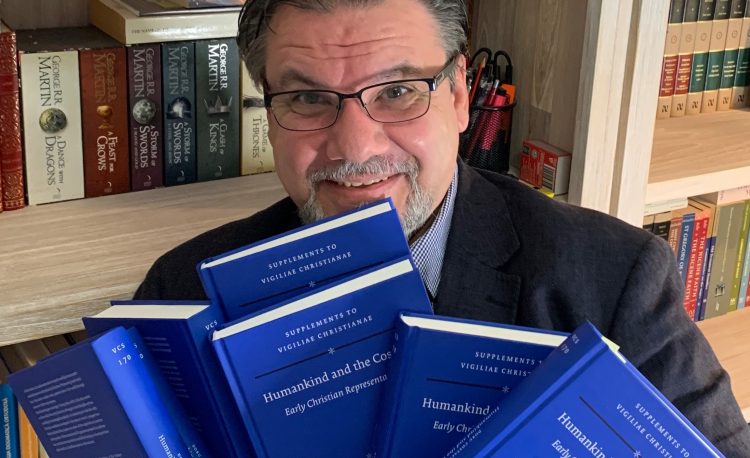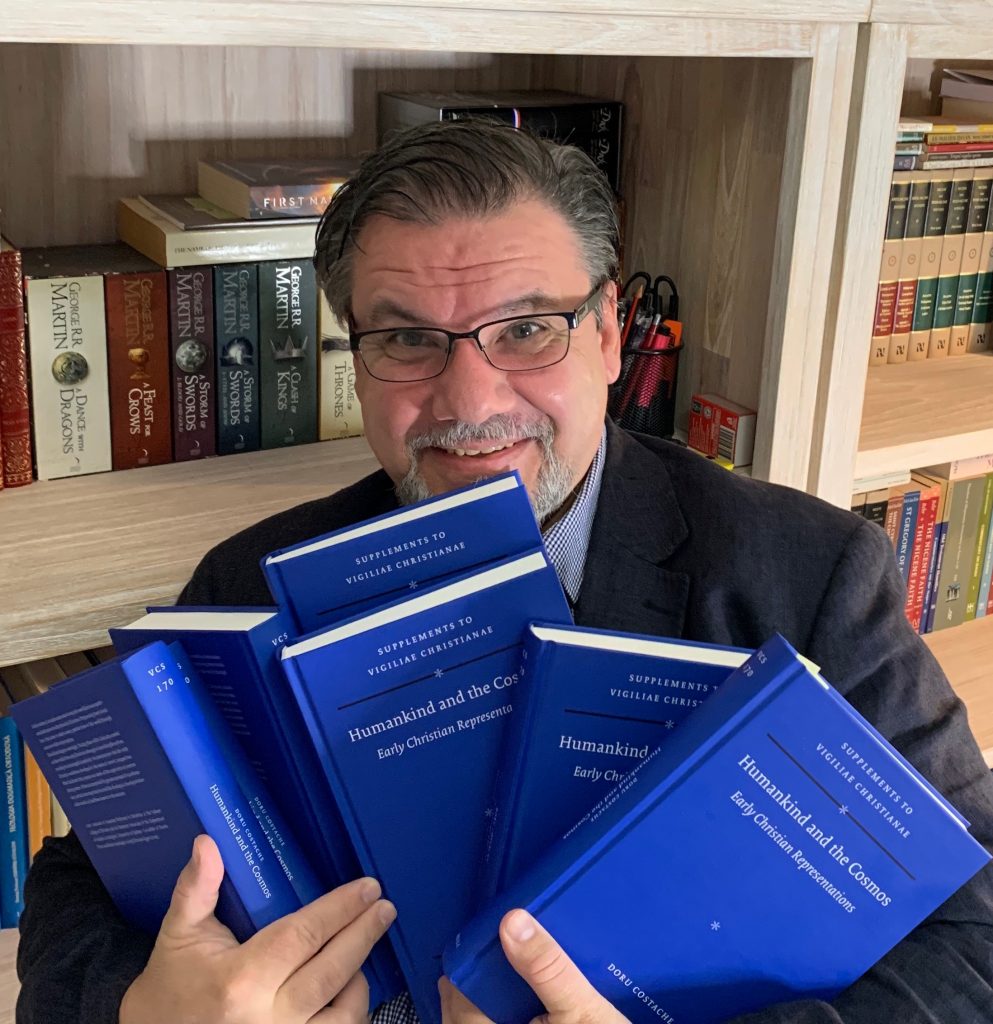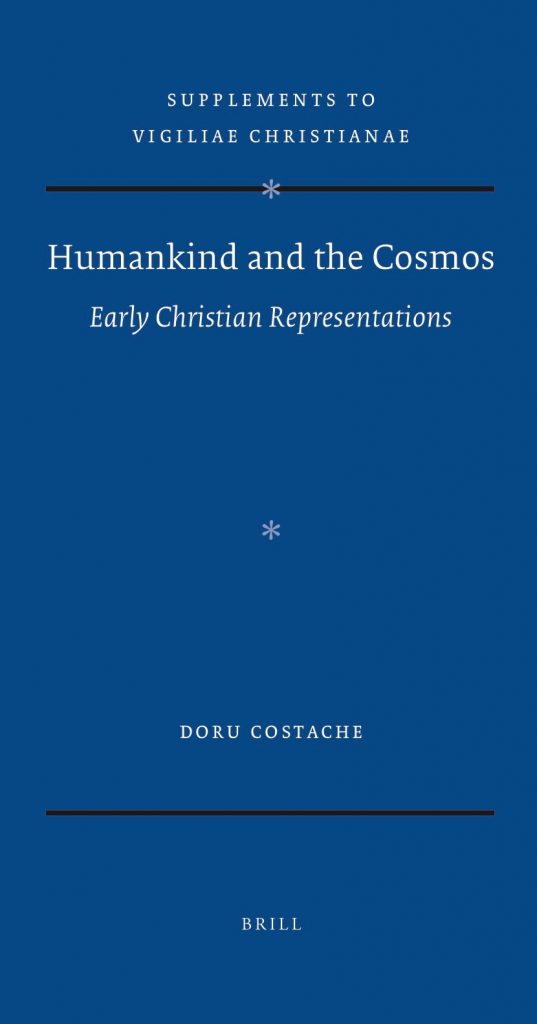AIOCS’ founding director, Doru Costache, has published a monograph in the prestigious series Supplements to Vigiliae Christianae, the 170th volume of the series. The book is called Humankind and the Cosmos: Early Christian Representations (Leiden and Boston: Brill, 2021). It addresses matters of the early Christian worldview at the crossing of science and religion, patristics, and early Christian studies.
From the Introduction: The World of the Early Christians
If we cannot change the world, at least let’s look at it differently. I was still a teenager when I read this thought in Nikos Kazantzakis’ astonishing book, Report to Greco. It might not run quite like this—hence the absence of quotation marks—but this is how I remember it. If memory serves me right, he was paraphrasing a Byzantine mystic, without giving a name. At the time I was convinced that this aphorism enshrined a lamentable failure. Of course the world had to be changed! Later in my life, however, I came to understand that to consider things differently does make a change—within oneself—and that it is this change that matters. However, as I undertook lengthy patristic explorations, I realised that to look at the world differently is in fact to change it. The philosophical ramifications of quantum physics seemed to confirm this conclusion. I still believe it. But what matters is that all this has led me here, to present this book about the early Christians and how they viewed the world, or how, in doing so, they changed it.
From the Conclusions: Yesterday’s Lessons for Today
The sources discussed throughout this book display deep reverence for God’s wisdom embodied in the created universe. While the universe itself is not the focus of their reverence, these sources nevertheless depict it as theologically meaningful and worthy of respect and awe. Quantitative assessments, economical calculation, and anthropocentric considerations have no say here. Nor do simplistic theological definitions of the creation’s mystery that reduce it to having been created ex nihilo. That the insights of these early Christian sources into natural phenomena have in time become outmoded is of no consequence. Their contemplative and qualitative approach does not depend upon the ancient sciences—or any other scientific culture for that matter. This is so because these sources do not only describe reality. They marvel at the harmony and beauty of things; the fitness and usefulness of the natural processes; the meaningfulness and the purposefulness of the universe. The world they depict is harmonious and musical; a world full of signs and messages. Their world is a welcoming place where people find shelter and enjoyment, wisdom and enrichment. The aptitude of the early Christians for wonderment led them to an overwhelming experience of cosmic fellowship, of meaning and purposefulness. Their experience is the very opposite of the sense of despair, isolation, and meaninglessness felt by contemporary people, who cannot free their hectic schedules in order to see the eloquent beauty of cosmic order. A return to natural contemplation and the early Christian sense of wonder might improve their situation—especially at the present time, when the pressures of the pandemic add further angst to the sense of pointlessness that so many people experience.
Frontmatter
